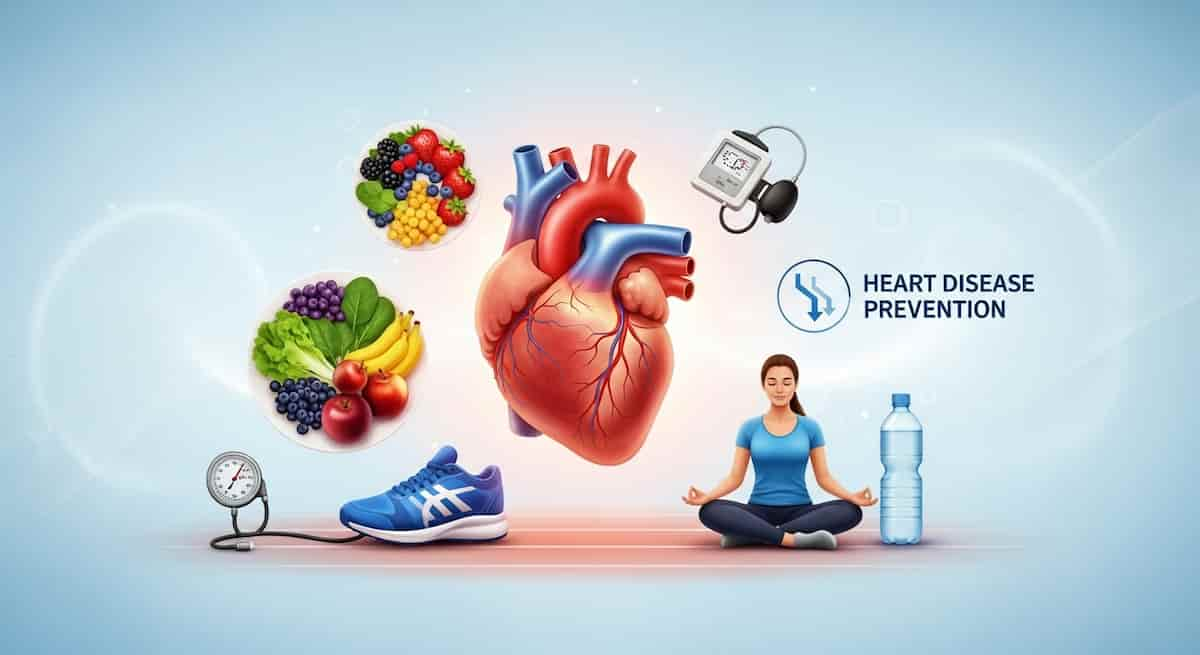Health
Walking After Meals Could Slash Heart Attack Risk by 40%

A simple habit of walking after meals may significantly reduce the risk of heart attacks, according to medical experts. Dr. Vassily, a longevity specialist, suggests that engaging in a brisk walk post-meal could cut heart attack risk by as much as 40%. This straightforward practice requires no special equipment and can be initiated immediately.
Benefits of Post-Meal Walking
The benefits of taking a walk following meals primarily relate to how it helps the body manage food intake. One of the key advantages is its ability to control blood sugar spikes. After consuming carbohydrates, blood sugar levels naturally rise. A brief walk facilitates the absorption of excess sugar into the muscles for energy, thereby preventing sharp increases that can lead to inflammation and arterial damage, both significant contributors to heart disease.
Furthermore, regular walking helps lower blood pressure and reduce levels of LDL cholesterol, commonly referred to as “bad” cholesterol. Engaging in physical activity like walking over time contributes to clearer arteries and less strain on the heart. Research indicates that individuals who walk regularly are at a markedly lower risk of cardiovascular events.
Improving circulation is another crucial benefit. Walking enhances blood flow and helps blood vessels relax, which is vital for maintaining optimal cardiovascular health.
How to Incorporate Walking into Your Routine
Incorporating post-meal walks into daily life does not require extensive time commitments. Dr. Vassily recommends aiming for 10-15 minutes of walking after each main meal. Studies have demonstrated that three 10-minute walks following meals can be more effective for managing blood sugar than a single 30-minute walk at any other time.
The intensity of the walk is also important. A pace of approximately 3 to 4 mph is ideal, as it should elevate the heart rate without causing significant breathlessness. Consistency in this practice is key to reaping long-term benefits.
Dr. Vassily refers to this habit as “the most powerful cardiovascular medicine,” emphasizing that if it were a pharmaceutical intervention, it would be prescribed universally. This easy, cost-free method offers a proactive way to enhance heart health, allowing individuals to take charge of their wellbeing, one step at a time.
-

 World4 months ago
World4 months agoSBI Announces QIP Floor Price at ₹811.05 Per Share
-

 Lifestyle4 months ago
Lifestyle4 months agoCept Unveils ₹3.1 Crore Urban Mobility Plan for Sustainable Growth
-

 Science3 months ago
Science3 months agoNew Blood Group Discovered in South Indian Woman at Rotary Centre
-

 World4 months ago
World4 months agoTorrential Rains Cause Flash Flooding in New York and New Jersey
-

 Sports3 months ago
Sports3 months agoBroad Advocates for Bowling Change Ahead of Final Test Against India
-

 Top Stories4 months ago
Top Stories4 months agoKonkani Cultural Organisation to Host Pearl Jubilee in Abu Dhabi
-

 Science4 months ago
Science4 months agoNothing Headphone 1 Review: A Bold Contender in Audio Design
-

 Top Stories4 months ago
Top Stories4 months agoAir India Crash Investigation Highlights Boeing Fuel Switch Concerns
-

 Sports3 months ago
Sports3 months agoCristian Totti Retires at 19: Pressure of Fame Takes Toll
-

 Business4 months ago
Business4 months agoIndian Stock Market Rebounds: Sensex and Nifty Rise After Four-Day Decline
-

 Politics4 months ago
Politics4 months agoAbandoned Doberman Finds New Home After Journey to Prague
-

 Top Stories4 months ago
Top Stories4 months agoPatna Bank Manager Abhishek Varun Found Dead in Well









